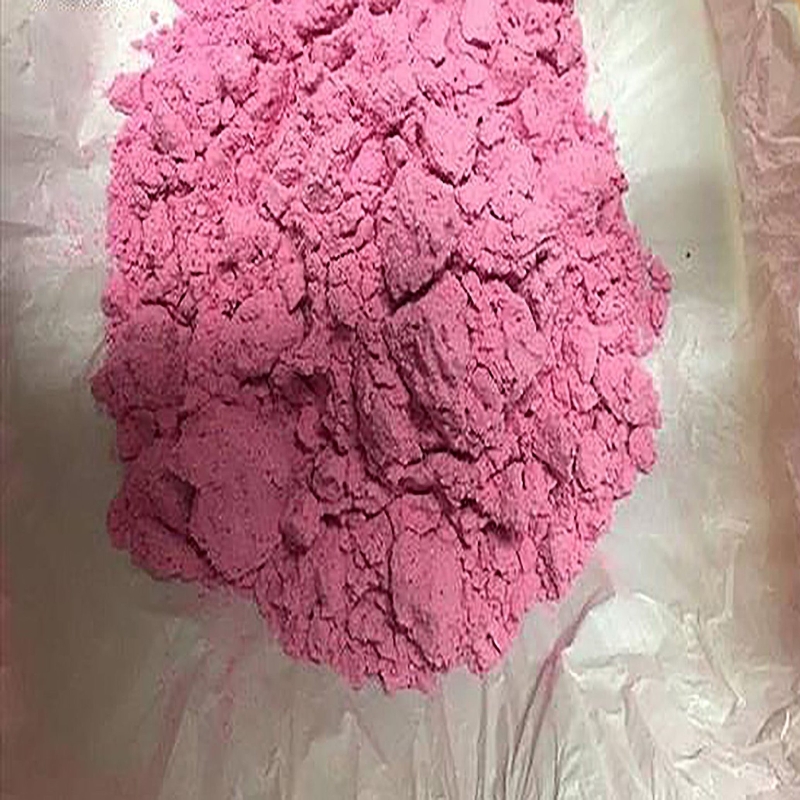-
Categories
-
Pharmaceutical Intermediates
-
Active Pharmaceutical Ingredients
-
Food Additives
- Industrial Coatings
- Agrochemicals
- Dyes and Pigments
- Surfactant
- Flavors and Fragrances
- Chemical Reagents
- Catalyst and Auxiliary
- Natural Products
- Inorganic Chemistry
-
Organic Chemistry
-
Biochemical Engineering
- Analytical Chemistry
-
Cosmetic Ingredient
- Water Treatment Chemical
-
Pharmaceutical Intermediates
Promotion
ECHEMI Mall
Wholesale
Weekly Price
Exhibition
News
-
Trade Service
Before tumor surgery, the surgeon will arrange various preoperative examinations and treatments, and formulate a plan for surgical removal of the tumor.
The anesthesiologist will also conduct a preoperative visit to the patient and formulate an anesthesia plan
.
At this time, many patients and their families have questions about how to choose an anesthesia plan, and which anesthesia plan is most suitable for tumor surgery? Today, I will discuss this issue with you
As we all know, the location, nature, and size of tumors vary greatly
.
During tumor surgery, the surgeon will perform pathological examinations of the patient's tumor tissue.
Secondly, due to the disease, tumor patients are often in a state of anxiety and anxiety before surgery, and they also have fear of tumor resection.
Therefore, many patients often hope to complete tumor surgery in their sleep and prefer general anesthesia
.
Furthermore, with the advancement of medicine, more and more operations are performed using minimally invasive methods.
For example, gastrointestinal tumors are often removed by laparoscopic surgery, which requires a certain amount of gas to be filled into the abdominal cavity to relieve the pressure
.
The patient will have difficulty breathing due to the pressure of the diaphragm, accompanied by obvious discomfort, nausea and vomiting, and cannot tolerate the operation.
What is general anesthesia?
General anesthesia refers to inhalation through a face mask or intravenous infusion of general anesthetics to make the patient go into a state of loss of consciousness (in short, falling asleep) and painless state
.
This process is reversible.
What is the process of general anesthesia?
Many patients will be nervous about what general anesthesia is like, and whether it is dangerous and irritating, let me reveal the secret below!
First of all, after entering the operating room, the nurse will place an infusion needle on your hand or foot, and the anesthesiologist will put electrode pads on you to connect to the ECG monitoring
.
The sphygmomanometer cuff will be tied to the arm, and the elasticity will change every 5 minutes or so.
After the surgeon, anesthesiologist, and nurse check the information together, the anesthesia is about to begin! The anesthesiologist will inject general anesthetics into the blood vessels , and then you will slowly "fall asleep", the whole body pain disappears, the anesthetics will also inhibit the excessive rise of blood pressure and heart rate, resulting in relaxation of the whole body, and thus meet the needs of surgery
.
During general anesthesia, the patient's breathing will be very unstable, so it is necessary to perform tracheal intubation and connect a ventilator for supportive treatment
.
Tracheal intubation may cause damage to the patient's loose teeth.
What is the procedure and recovery from anesthesia after surgery?
In the process of tumor surgery, although the patient has "quietly fallen asleep", the body has undergone earth-shaking changes, and the tumor has been removed in the process! Surgeons and anesthesiologists will deal with various emergencies during the operation to ensure the safety of patients
.
After the operation is over, the anesthesiologist will stop the general anesthetic and wait until the patient wakes up slowly before removing the tracheal tube
Will I "be stupid" after general anesthesia?
Patients will be concerned about this issue, nervous and asked the anesthesiologist: "I made a general anesthetic will not become stupid?"
.
In fact, many years of clinical research and practice by experts have shown that the tension and stress before surgery affect the brain function of the patient, and the inflammation, trauma and pain during and after the operation will also affect the memory of the patient
Some patients will say that when I wake up from the operation, I don’t even remember that I had the operation.
Does this have no effect on memory? You don't need to be nervous, general anesthetics do have a forgetting effect.
The anesthesiologist uses these drugs to make the patient forget about the operation process, making the anesthesia and operation process more comfortable, which is also closer to the sleep process
.
What should I pay attention to before and after general anesthesia?
After general anesthesia, the patient’s coughing, swallowing and other protective reflexes disappear, and gastric contents are easily refluxed and aspirated, causing suffocation and lung infection .
Therefore, the patient cannot eat or drink for 2 hours before the operation
.
As far as general anesthesia is concerned, in order to avoid postoperative nausea, vomiting, and vomit asphyxiation, you can usually eat only 6 hours after returning to the ward.
Of course, different surgeries, especially tumor surgeries, have different characteristics and requirements.
Please listen to the doctor in charge and The nurse's advice
.
.
You may have a certain fear of surgery, but in fact, you are asleep during tumor surgery and general anesthesia, and you don't need to worry or do anything
.
If you cannot sleep due to stress before surgery, you can also use sleep-helping drugs in the evening before surgery, which will also help the smooth development of tumor surgery and anesthesia
.
Before tumor surgery, the surgeon will arrange various preoperative examinations and treatments, and formulate a plan for surgical removal of the tumor.
The anesthesiologist will also conduct a preoperative visit to the patient and formulate an anesthesia plan
.
At this time, many patients and their families have questions about how to choose an anesthesia plan, and which anesthesia plan is most suitable for tumor surgery? Today, I will discuss this issue with you
.
The anesthesiologist will also conduct a preoperative visit to the patient and formulate an anesthesia plan
.
At this time, many patients and their families have questions about how to choose an anesthesia plan, and which anesthesia plan is most suitable for tumor surgery? Today, I will discuss this issue with you
.
As we all know, the location, nature, and size of tumors vary greatly
.
During tumor surgery, the surgeon will perform pathological examinations of the patient's tumor tissue.
If the tumor is found to be benign during the operation, the resection area will be smaller.
If it is found to be a malignant tumor, extensive resection will be performed for the purpose of radical treatment
.
Therefore, each patient's tumor surgery plan may be different, which presents a great challenge to the anesthesiologist.
If local anesthesia (including intraspinal anesthesia or nerve block anesthesia) is selected, it is likely that after intraoperative examination, It is difficult to meet the needs of surgery when the tumor needs to be enlarged.
Therefore, anesthesiologists in tumor hospitals are often more inclined to choose general anesthesia to cope with the various variables in tumor surgery
.
Secondly, due to the disease, tumor patients are often in a state of anxiety and anxiety before surgery, and they also have fear of tumor resection.
Therefore, many patients often hope to complete tumor surgery in their sleep and prefer general anesthesia
.
Furthermore, with the advancement of medicine, more and more operations are performed using minimally invasive methods.
For example, gastrointestinal tumors are often removed by laparoscopic surgery, which requires a certain amount of gas to be filled into the abdominal cavity to relieve the pressure
.
The patient will have difficulty breathing due to the pressure of the diaphragm, accompanied by obvious discomfort, nausea and vomiting, and cannot tolerate the operation.
At this time, general anesthesia becomes the inevitable choice of the anesthesiologist
.
What is general anesthesia?
What is general anesthesia? What is general anesthesia?General anesthesia refers to inhalation through a face mask or intravenous infusion of general anesthetics to make the patient go into a state of loss of consciousness (in short, falling asleep) and painless state
.
This process is reversible.
When the operation is over and the anesthesiologist stops the general anesthetic, the patient can gradually wake up and return to a sober state
.
What is the process of general anesthesia?
What is the process of general anesthesia? What is the process of general anesthesia?Many patients will be nervous about what general anesthesia is like, and whether it is dangerous and irritating, let me reveal the secret below!
First of all, after entering the operating room, the nurse will place an infusion needle on your hand or foot, and the anesthesiologist will put electrode pads on you to connect to the ECG monitoring
.
The sphygmomanometer cuff will be tied to the arm, and the elasticity will change every 5 minutes or so.
That is the sphygmomanometer is automatically measuring blood pressure
.
A finger cuff is also put on a finger to monitor blood oxygen
.
After the surgeon, anesthesiologist, and nurse check the information together, the anesthesia is about to begin! The anesthesiologist will inject general anesthetics into the blood vessels , and then you will slowly "fall asleep", the whole body pain disappears, the anesthetics will also inhibit the excessive rise of blood pressure and heart rate, resulting in relaxation of the whole body, and thus meet the needs of surgery
.
During general anesthesia, the patient's breathing will be very unstable, so it is necessary to perform tracheal intubation and connect a ventilator for supportive treatment
.
Tracheal intubation may cause damage to the patient's loose teeth.
Therefore, it is recommended that the patient see the dentist before the operation and take care of all the problematic teeth!
What is the procedure and recovery from anesthesia after surgery?
What is the procedure and recovery from anesthesia after surgery? What is the procedure and recovery from anesthesia after surgery?In the process of tumor surgery, although the patient has "quietly fallen asleep", the body has undergone earth-shaking changes, and the tumor has been removed in the process! Surgeons and anesthesiologists will deal with various emergencies during the operation to ensure the safety of patients
.
After the operation is over, the anesthesiologist will stop the general anesthetic and wait until the patient wakes up slowly before removing the tracheal tube
.
According to the surgical situation and the needs of the patient, the doctor will give appropriate analgesics and explain the precautions to the patient and family members
.
Therefore, the entire general anesthesia process is relatively comfortable
.
Will I "be stupid" after general anesthesia?
Will I "be stupid" after general anesthesia? Will I "be stupid" after general anesthesia?Patients will be concerned about this issue, nervous and asked the anesthesiologist: "I made a general anesthetic will not become stupid?"
.
In fact, many years of clinical research and practice by experts have shown that the tension and stress before surgery affect the brain function of the patient, and the inflammation, trauma and pain during and after the operation will also affect the memory of the patient
.
In this process, the implementation of general anesthesia can relieve the stress state of the patient’s brain, relieve pain, and protect the brain during the perioperative period.
Therefore, in a sense, applying appropriate general anesthesia during the operation is not Your body is helpful and does not cause "becoming stupid"
.
Some patients will say that when I wake up from the operation, I don’t even remember that I had the operation.
Does this have no effect on memory? You don't need to be nervous, general anesthetics do have a forgetting effect.
The anesthesiologist uses these drugs to make the patient forget about the operation process, making the anesthesia and operation process more comfortable, which is also closer to the sleep process
.
What should I pay attention to before and after general anesthesia?
What should I pay attention to before and after general anesthesia? What should I pay attention to before and after general anesthesia?After general anesthesia, the patient’s coughing, swallowing and other protective reflexes disappear, and gastric contents are easily refluxed and aspirated, causing suffocation and lung infection .
Therefore, the patient cannot eat or drink for 2 hours before the operation
.
As far as general anesthesia is concerned, in order to avoid postoperative nausea, vomiting, and vomit asphyxiation, you can usually eat only 6 hours after returning to the ward.
Of course, different surgeries, especially tumor surgeries, have different characteristics and requirements.
Please listen to the doctor in charge and The nurse's advice
.







